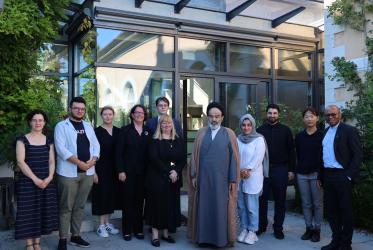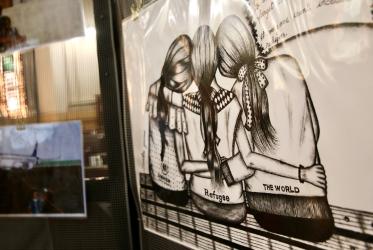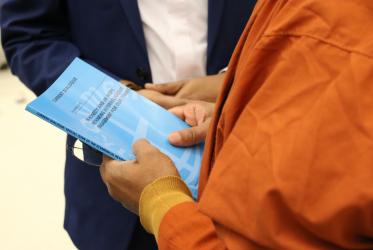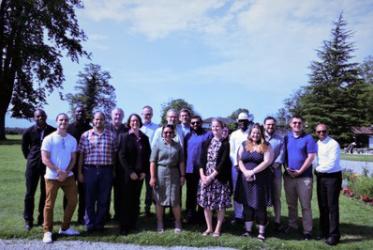Displaying 1 - 20 of 74
Upcoming webinar will focus on COVID-19 and caste discrimination
24 February 2022
Festivities and dialogue launch new WCC journal
07 February 2020
Bossey gathers students for interreligious dialogue
02 July 2019
Human fraternity is a divine calling, says WCC general secretary
03 February 2019















